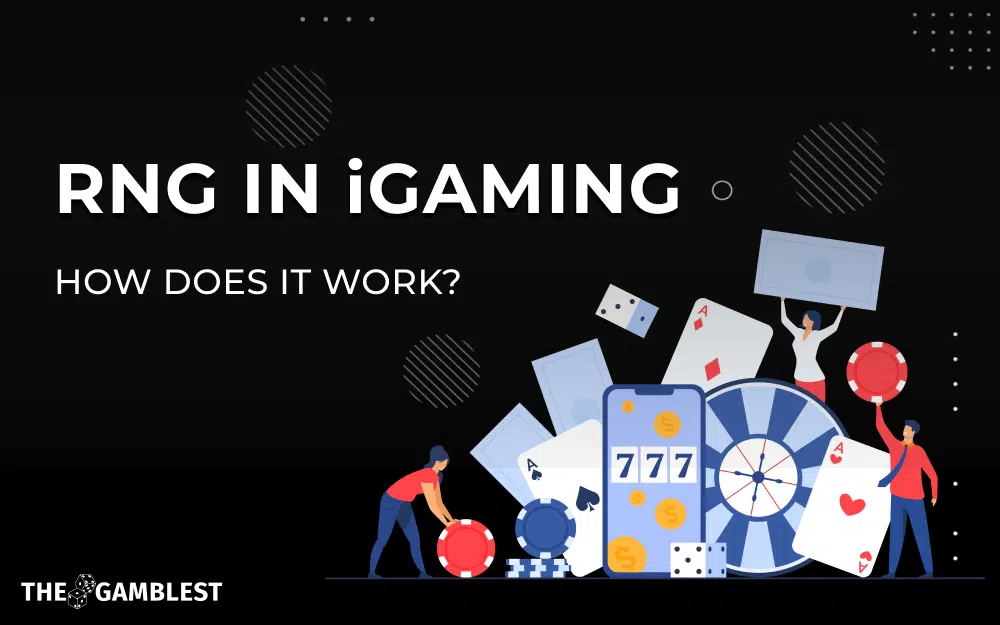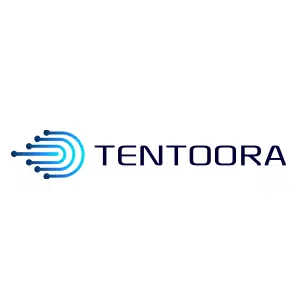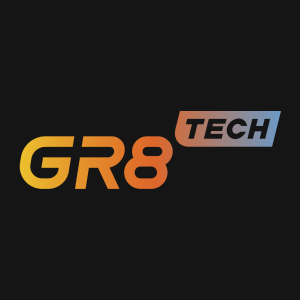
As many of you are aware, randomness is the fundament of any online casino game. In online games, players depend on luck or the unpredictable nature of chance to determine the course of the game. In this article, TheGamblest will open the brackets and discuss the main character – the Random Number Generator (RNG) in iGaming.
The main purpose of Random Number Generators (RNGs) is to make sure fairness in games. To prove that what they produce are unbiased and unaffected by any other parties, game content creators must ensure total transparency in all of their offerings.
The majority of online casino games employ these RNGs to dictate game outcomes. Esteemed and authorized gambling platforms rely on RNGs that undergo evaluation by impartial bodies, affirming the perpetuation of equitable gaming standards. Despite this, there is a persistent curiosity among players regarding the nature of RNG in iGaming and their authenticity in ensuring fairness.
This article takes an in-depth dive into the concept of RNGs, trying to understand what it is and how it is being utilized in online casinos, and more about RNG Certificate and how you can obtain it.
What is a Random Number Generator (RNG)?
Random Number Generator (also known as RNG) is a computational or physical process designed to create an order of digits that are free from any pattern or predictability. These numbers are often referred to as “random” because they have no discernible order or relationship to each other. RNGs are used in many different fields, encompassing computer science, statistics, cryptography, and of course gambling, whenever a source of randomness and unpredictability is required.
There are two primary categories of random number generators:
- True Random Number Generator (TRNG)/Hardware Random Number Generator (HRNG): This kind of RNGs are based on physical means, completely hardware-generated, that are inherently not predictable, like atmospheric noise, nuclear decay, Brownian motion, clock drifts, and other quantum phenomena. TRNGs provide a higher degree of randomness as they are based on genuine randomness found in the physical world.
- Pseudorandom Number Generator (PRNG): This is an algorithm that is fully computer-generated and uses a deterministic process to create sequences of digits of approximate randomness. They start with a starting value called a ‘seed’ and then use algorithms to generate numbers. PRNGs are deterministic, this being said, if you know the ‘seed’ and the algorithm, you will be able to guess the whole sequence. Nevertheless, they can produce sequences that are statistically indistinguishable from true randomness, making them suitable for many applications.
PRNGs are commonly utilized in computer systems, due to their computational effectiveness and ability to produce a large number of seemingly random values quickly. However, for applications where high security is crucial, TRNGs are more preferred.
Keep in mind, that no PRNG can be truly random, as they are fundamentally based on deterministic algorithms. Their results are considered pseudorandom, meaning it behaves like true randomness for most goals, but it is not genuinely random in the way that a TRNG’s output is.
How does RNG work in online casinos?
The concept of RNG in casinos is not novel to the casino world and isn’t exclusive to online gambling platforms either. Even in the era of mechanical slot machines, land-based casinos have long incorporated hardware-based RNGs. These generators are intricately linked to the casino’s server through USB connections. Once this connection is established, the device harnesses intricate values from inherently unstable atmospheric phenomena or physical processes. These initial values then serve as the foundation for generating diverse game outcomes.
In online casinos, PRNGs find applications in virtual games devoid of human dealers or manual intervention. Casino game developers integrate this software into their creations to guarantee the randomness of every iteration. Upon initiating a game on an online casino platform, the generator promptly generates a fresh seed number with each millisecond that passes.
Which casino games use RNG?
RNG is broadly used in almost all online casino games encompassing online slots, virtual poker, bingo, keno, craps, virtual lottery and scratch card games, virtual sports betting, blackjack, roulette, etc.
RNG-certified slots ensure independent and random spins, offering users equal winning opportunities. In online poker, RNGs ensure random card distribution, preventing unfair advantages and external influences. In sports betting, RNG is used in different ways to determine the likelihood of certain sporting events, as well as to determine the outcomes of virtual sports games. This randomness is what creates the element of chance in slot games.
What is RNG certification?
Operators, who are just starting their path in iGaming, should include RNG-related expenses in their budget planning. Let’s see what is it exactly, and why online casinos may need it.
A Random Number Generator Certification vouches for the statistical number randomness generated by computers and machines. It guarantees the absence of patterns in these numbers, confirming their true randomness.
This certificate is validated by an authorized RNG testing organization. It confirms that a gaming machine, online or mobile platform meets the standards. These rules guarantee complete randomness and unpredictability in the generated numbers, making sure fair gameplay for all users and credibility.
How to acquire an RNG certificate?
The process of acquiring an RNG certificate involves a few key steps, whether it is issued by governmental bodies or private organizations. Here is a breakdown of the certification procedure:
Step 1. Select a certifying organization
Initially, you must choose the certifying body that will audit your system and grant you the RNG certificate. During this stage, you will also need to assemble a package of necessary documents. The certification price will be unveiled at this point.
Step 2. Test the system
Once you have all the required documents in place, the testing phase commences. This step involves a thorough evaluation of various components, including:
- Internal state of the RNG
- Game loop integrity
- Unpredictability with no repetitions
- Scaling and shuffling
- Statistical randomness
Any vulnerabilities within the system are typically found and addressed during this phase.
Step 3. Complete diehard testing
RNGs are subjected to rigorous “diehard tests,” that are specifically created to assess the level of randomness in algorithms and are among the most stringent evaluation criteria.
Step 4. Check the Chi-square test compliance
At this juncture, the RNG undergoes scrutiny to ensure it complies with Chi-square tests, further validating its integrity. The entire generator verification process typically spans 1-3 weeks. Some certifying companies may expedite testing by offering a selection of pre-approved algorithms.
Step 5. Include it in your website
Once you’ve obtained the RNG certificate, it is imperative to display it prominently on your gambling website. This action serves to affirm your casino’s commitment to integrity and transparency, and it also plays a crucial role in attracting a fresh and relevant audience to your platform
Why obtaining an RNG certification is beneficial for operators?
Having an RNG certification comes with a number of benefits for casinos, especially for several important reasons:
- Fairness and Integrity: RNGs are crucial in maintaining the equitability and integrity of casino games. They ensure that the outcomes of games are completely random and not influenced by any external factors. This builds trust among players that the casino is operating a legitimate and honest gaming environment.
- Regulatory Compliance: Many jurisdictions and regulatory bodies require casinos to use certified RNGs to ensure compliance with gambling regulations. Having RNG certification demonstrates the casino’s commitment to adhering to legal standards and can help them obtain or maintain their operating licenses.
- Player Trust: Players are more likely to engage with a casino that is transparent about its gaming practices. When a casino prominently displays its RNG certification, players are more likely to trust that the games are not rigged and that they have a fair chance of winning.
- Industry Reputation: Holding RNG certification contributes to a casino’s reputation within the gambling industry. Casinos that are known for using certified RNGs are often regarded as more reliable and trustworthy establishments, which can attract both new and returning players.
- Partnerships and Collaboration: Having RNG certification can make it easier for casinos to establish partnerships with software providers, payment processors, and other industry stakeholders. These partners are more likely to work with a casino that demonstrates a commitment to fairness and transparency.
Top RNG certification issuers in the iGaming
Several certified groups in the industry examine casino RNGs to make sure they’re truly random and fair. Some well-known names in this field include eCOGRA, QUINEL, BMM Testlabs, Gaming Labs International (GLI), Gaming Associates, and iTechLabs.
-
Gaming Labs International (GLI)
Industry experience:+30 years
Headquartered :United States, New Jersey
Testing in:Europe, Australia, Africa, South and North Americas, Asia
-
-
BMM Testlabs
Industry experience:+42 years
Headquartered:United States, Las Vegas
Testing in:Europe, Australia, Africa, South and North Americas, Asia
-
e-Commerce Online Gambling Regulation and Assurance
Industry experience:+20 years
Headquartered:UK, London
Testing in:Europe, South and North Americas, Asia
-
Gaming Labs International (GLI)

RNG in iGaming is managed by GLI, a company offering testing and certification services in the industry. However, the company’s role extends beyond mere testing— it offers an unparalleled array of services and tools tailored for regulators, suppliers, and operators. Internationally recognized, GLI certificates hold approval in controlled markets, making them highly sought after by iGaming brands.
iTech Labs

Established in 2004, iTech Labs stands among the global top companies in testing and certifying online gaming systems. With the services available in the EU, Asia, as well as South and North Americas, iTech Labs prioritizes compliance with the rules and regulations and limitations of specific jurisdictions, making sure that clients’ game content aligns with today’s licensing requirements. The RNG certification process at iTech Labs involves three key stages. Initially, the team thoroughly examines and tests the code for vulnerabilities. Subsequently, a sequence of diehard tests is conducted to showcase the system in action.
QUINEL

Another company that supports RNG in iGaming, QUINEL, has been a stalwart in the iGaming industry for more than 10 years, operating a laboratory in Italy and maintaining hubs in Malta and the UK. The company harnesses worldwide proficiency in game testing, certification, and inspection. Operators can rely on the global acknowledgment of QUINEL test reports and accreditations. The organization makes sure that the testing and inspection procedures it uses follow the guidelines of a company policy that emphasizes autonomy, fairness, and secrecy.
BMM Testlabs

Established in 1981, BMM Testlabs is another reputable gaming testing lab offering various services to iGaming companies. With 15 hubs in over 14 different locations, BMM offers comprehensive testing, regulatory consultancy, and field services globally. Specializing in gaming compliance, BMM provides special educational training, fostering client companionships globally through a dedication to advancement and quality.
e-CORGA

Founded in 2003, eCOGRA emerged as a self-regulatory body dedicated to overseeing fair gaming, user safety, and responsible behavior in the industry. Its Generally Accepted Practice (eGAP) Requirements, established during a time of limited industry regulation, have adapted to tech advancements and worldwide-accepted standards. The enduring demand for eCOGRA’s services is fueled by its commitment to impartiality and autonomy, crucial elements contributing to its ongoing success.
Gaming Associates Europe

Since the 1990s, experts at GA Europe have been at the forefront of controlled iGaming compliance testing, delivering their services to casinos, manufacturers, aggregators, and regulators alike. With a huge experience, the organization offers cost-effective solutions for internet gaming system casinos in need of approved control systems, information governance, and security systems certification. Furthermore, GA Europe aids investors by providing technical due diligence and governance assessment reports essential for acquisitions and mergers.
What is the future of RNG in iGaming?
As technology advances, the future of RNG in iGaming promises a better and more intricate system, including:
- Emerging Technologies – Innovations in AI or quantum computing are poised to revolutionize RNG. These advancements can potentially produce RNG systems that will be more secure and impossible to predict.
- Developing iGaming Landscape – The market is dynamic, with constantly changing formats and genres. To maintain equity in ever-more complicated gaming settings, future RNG systems may need to get tailored to these developments.
- Predictions and New Directions – The industry can expect stricter regulatory rules for RNG, coupled with technological innovations. These developments will make RNG remain the fundament of clarity in the fast-moving iGaming world.
RNG quietly serves as the backbone of iGaming, bringing fairness in each online card shuffle, spin or dice roll. As technology progresses, RNG’s significance will only increase, keeping the integrity and strengthening the enthusiasm of iGaming worldwide. In today’s rapidly growing virtual era, RNG remains a steadfast symbol of equity and trust, necessary for the ongoing advancement and prosperity of iGaming.
FAQ
Are RNG games fair?
Reputable and reliable websites utilize Random Number Generator (RNG) software, which undergoes regular evaluation by independent auditors to ensure its integrity. Independent entities frequently provide consultation and comprehensive testing services to both brick-and-mortar casinos and online platforms. This practice guarantees that users can engage in fair and enjoyable gambling experiences within regulated physical and virtual gambling establishments.
When a wagering site is accredited for fairness, it signifies that its RNGs operate in a genuinely random manner. Users can easily verify this by locating the certification seal on their chosen gambling website, typically situated at the bottom of nearly every webpage on the site.
Can you predict RNG games?
Simply put, the answer is no. There is no algorithm or method that can guarantee you’ll win in an online casino game. It doesn’t matter how many times the game has been played or what the results were – the chances of winning the next time stay unchanged.
How much does an RNG certificate cost?
The price for an RNG certificate can vary, which is based on the website and the variety of gaming content it offers. While various RNG software versions can be used for different game types, a single set of documentation is always needed. The amount is estimated by the certifier and you should better directly contact your selected company and get valid pricing.
Are RNG and RTP connected?
RNG and RTP are usually mixed up, yet they are unrelated concepts with separate functions. RNG in iGaming is responsible for producing continuous streams of random number sequences. Conversely, Return-to-Player (RTP) is the percentage of players’ wagers returned to them as winnings. What unites RTP and RNG is a crucial role in slots. Today’s slot games are sophisticated software-based experiences, and online casinos are expected to deliver a high standard of performance. This includes ensuring that these games replicate the experience of playing on real machines in renowned locations like Las Vegas.
Conclusion
The core of casino operations revolves around RNGs, which ensure fairness and security in the realm of gambling. Beyond these essential functions, RNGs have also unlocked a realm of possibilities for game developers. This has resulted in the creation of genuinely developed games that promise a random outcome every time, despite the specific mechanics and gameplay involved. This not only enriches the gaming practice but also guarantees a level playing field for all participants.
















